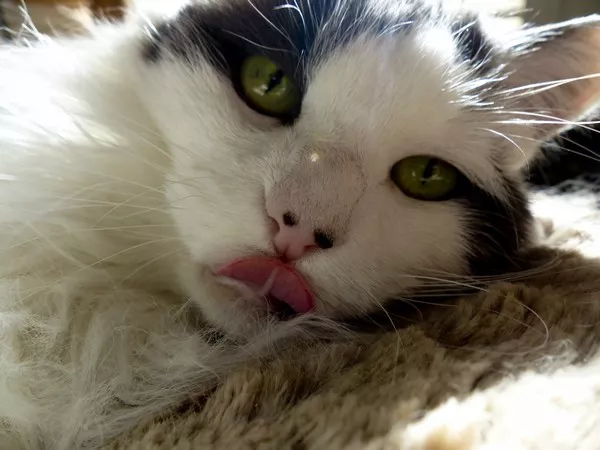Nursing abandoned kittens can be a deeply rewarding yet challenging endeavor. These vulnerable creatures, often found without their mother, require dedicated care and attention to thrive. Understanding their needs, from feeding and hygiene to socialization and health monitoring, is essential for anyone embarking on this journey. This essay will explore the critical aspects of caring for abandoned kittens, providing a detailed guide for rescuers, foster caregivers, and animal lovers alike. By following these guidelines, you can ensure that these kittens receive the best possible start in life, setting them on a path toward health and happiness.
Understanding the Needs of Kittens
The Early Days: Developmental Stages
Kittens go through several developmental stages in their early lives, each with unique needs.
Neonatal Stage (0-2 Weeks)
During the first two weeks, kittens are entirely dependent on their mother or a caregiver. They are born blind and deaf, relying on their sense of touch and smell to navigate their environment. In this stage:
Feeding: Kittens should be fed every 2-3 hours with a high-quality kitten milk replacer (KMR). It’s crucial to avoid cow’s milk, as it can cause digestive upset.
Temperature Regulation: Kittens are unable to regulate their body temperature. Keeping them warm (around 85-90°F or 29-32°C) is vital. A heating pad set on low, wrapped in a towel, can provide warmth without overheating.
Elimination: Kittens cannot urinate or defecate on their own. Caregivers must stimulate them by gently rubbing their genital area with a warm, damp cloth after each feeding.
Transitional Stage (2-4 Weeks)
At this stage, kittens begin to open their eyes and ears, becoming more aware of their surroundings.
Feeding: Kittens can start to be introduced to a gruel made from kitten formula mixed with wet kitten food. This should be done gradually.
Socialization: Handling and gentle play can begin, helping the kittens to develop social skills and become accustomed to human interaction.
Socialization Stage (4-8 Weeks)
Kittens become more playful and curious during this period. They start to explore their environment and interact with littermates.
Feeding: Kittens should be fully transitioned to solid food by around 8 weeks. High-quality kitten food is essential for their growth and development.
Play and Interaction: This is a critical time for socialization. Introduce toys and engage in play to help them develop hunting skills and social behaviors.
Basic Supplies Needed
To ensure the well-being of abandoned kittens, caregivers should gather essential supplies:
Kitten Milk Replacer (KMR): A specially formulated milk substitute for feeding.
Feeding Bottles and Nipples: Small bottles with nipples designed for kittens.
Heating Pad: To maintain warmth during the neonatal stage.
Soft Bedding: A warm, comfortable area for the kittens to sleep.
Litter Box: Introduce a shallow litter box once they start to eat solid food.
Kitten Food: High-quality wet and dry kitten food for later stages.
Toys: Safe toys to encourage play and stimulation.
Feeding Abandoned Kittens
Feeding Techniques
Feeding abandoned kittens requires careful attention to technique and hygiene.
Bottle Feeding
Preparation: Warm the KMR to body temperature before feeding. Test the temperature on your wrist to ensure it’s not too hot.
Positioning: Hold the kitten in a natural, belly-down position, similar to how it would nurse from its mother. Avoid feeding them on their backs, as this can cause aspiration.
Pacing: Allow the kitten to suckle at its own pace. If the kitten is not sucking, gently squeeze the bottle to release a small amount of formula.
Gradual Transition to Solid Food
Introducing Gruel: At around 4 weeks, mix KMR with wet kitten food to create a gruel. Gradually thicken the mixture over a week or so.
Encouraging Self-Feeding: Place the gruel in a shallow dish and encourage the kittens to eat on their own.
Feeding Schedule
Neonatal Stage (0-2 Weeks): Every 2-3 hours, including overnight.
Transitional Stage (2-4 Weeks): Every 3-4 hours, gradually introducing solid food.
Socialization Stage (4-8 Weeks): 4-5 times a day, with a focus on solid food.
Hygiene and Health Care
Keeping Kittens Clean
Maintaining hygiene is crucial for the health of abandoned kittens.
Bathing
When to Bathe: Kittens usually do not require baths unless they are dirty. If necessary, use a damp cloth to clean them gently.
Drying: Ensure they are thoroughly dried and kept warm after bathing.
Litter Box Training
Introducing the Litter Box: Once kittens are around 4 weeks old, introduce a shallow litter box filled with non-clumping litter.
Encouraging Use: Place the kittens in the box after meals and naps to encourage them to use it.
Health Monitoring
Regular monitoring of the kittens’ health is essential.
Weight Checks
Weighing: Weigh the kittens daily to ensure they are gaining weight. A healthy kitten should gain about 10-15 grams per day.
Growth Patterns: Keep track of their weight and growth to identify any potential health issues early.
Veterinary Care
Initial Check-Up: Schedule a veterinary appointment as soon as possible for a general health check.
Vaccinations: Discuss vaccination schedules with your veterinarian, as kittens should start their vaccinations around 6-8 weeks of age.
Socialization and Play
Importance of Socialization
Socialization is critical for developing well-adjusted, friendly kittens.
Handling
Gentle Handling: Handle the kittens regularly to help them become accustomed to human interaction.
Positive Experiences: Use treats and gentle voices to create positive associations with handling.
Playtime
Interactive Play: Use toys like feather wands, balls, and crinkle toys to engage the kittens in play.
Encouraging Exploration: Allow them to explore their environment safely, which helps build confidence.
Introducing to Other Pets
If you have other pets, introduce them to the kittens gradually.
Supervised Introductions
Controlled Environment: Keep initial meetings short and supervised to prevent overwhelming the kittens or stressing other pets.
Positive Reinforcement: Reward calm behavior from both the kittens and existing pets to encourage positive interactions.
Preparing for Adoption
Finding Forever Homes
Once the kittens are old enough and ready for adoption, it’s time to find them loving homes.
Adoption Process
Screening Potential Adopters: Interview potential adopters to ensure they are a good fit for the kittens.
Home Visits: If possible, conduct home visits to assess the living conditions.
Adoption Fees
Covering Costs: Consider charging a small adoption fee to help cover the costs of care and ensure that adopters are serious.
Educating New Owners
Provide new owners with information on caring for their new kittens.
Care Guidelines
Feeding: Share information on feeding schedules and appropriate food.
Health Care: Provide details on vaccinations and veterinary care.
Socialization and Training
Behavior Tips: Offer tips on socializing and training the kittens to help new owners establish a strong bond.
Conclusion
Nursing abandoned kittens is a challenging yet fulfilling responsibility that requires commitment, knowledge, and compassion. By understanding their needs at various developmental stages, providing proper nutrition, ensuring hygiene, and facilitating socialization, caregivers can significantly impact the lives of these vulnerable animals.
As you embark on this journey, remember that patience and love are key. With your care, attention, and dedication, abandoned kittens can grow into healthy, happy cats ready to find their forever homes. Through your efforts, you not only save lives but also contribute to the broader mission of animal welfare, ensuring that every kitten has the chance to thrive.
Related topic:






















